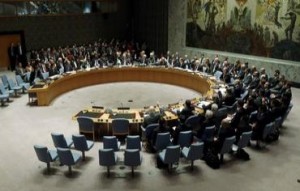For the first time in the history of the United Nations, a member has denied an offer to take a Security Council seat. The Kingdom of Saudi Arabia bluntly refused its elected position on Friday, October 18, citing its frustrations with what it perceives as the U.N.’s inability to resolve conflicts such as the Syrian civil war.

According to Al-Jazeera, the Saudi Foreign Ministry stated that “[a]llowing the ruling regime in Syria to kill its people and burn them with chemical weapons in front of the entire world and without any deterrent or punishment is clear proof and evidence of the U.N. Security Council’s inability to perform its duties and shoulder its responsibilities.” Saudi Arabia is an active supporter of Sunni Muslim rebels attempting to overthrow the regime of Syrian President Bashar al-Assad, a member of the Alawites, an offshoot of Shi’a Islam. The Kingdom has also expressed its frustrations regarding the international community not punishing Assad’s regime enough after a chemical weapons attack killed over 1,400 civilians last August. Reuters reports that the director of Saudi intelligence, Prince Turki al-Faisal, finds an agreement made by both the United States and Russia that requires Syria to destroy its chemical weapons stockpile to avoid punishment militarily “lamentable.” This agreement was approved unanimously by the Security Council.
Because no country has ever refused an offer to sit on the Security Council, the U.N. is unsure on how to resolve this predicament. The Washington Post quotes Gerard Araud, France’s U.N. Ambassador as saying “there is no agreed procedure, because it is the first time that it happens.” Currently, it is thought that the Asia group, a group in the U.N. that selects the Arab member to the Security Council, will have to select a new candidate for approval by the 193-member U.N. General Assembly to take the seat. This scenario, however, will only happen once Saudi Arabia sends an official notification to U.N. Secretary General Ban Ki-moon. Though Saudi Arabia has been boisterous in denying its Security Council offer, Ban has yet to receive an official rejection notification from the Kingdom. Thus, the current view of the U.N. is that Saudi Arabia, despite its rhetoric, has taken its seat on the Security Council for the next two years until an official rejection statement is sent.
The Security Council is a 15-member body that decides the fate of U.N. resolutions regarding issues around the world. There are five permanent members that hold veto power over any and all resolutions: the United States, the United Kingdom, France, Russia, and China. There must be no vetoes from any of the permanent members in order for a resolution to be approved. The ten other members are elected for two year terms. Although they do not hold veto power, these members can influence debates and offer insight on the benefits and flaws of a resolution. After their terms are over, these countries step down from the Security Council and new members are elected. Besides Saudi Arabia, other newly selected members of the Security Council include Lithuania, Nigeria, Chile, and Chad.
